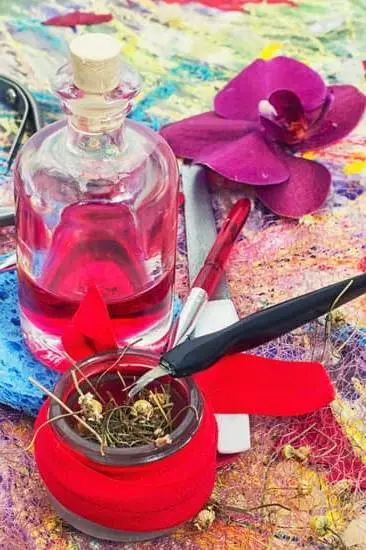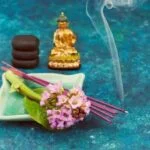Aromatherapy has been used for centuries as a natural healing practice, and essential oils play a key role in this therapeutic approach. In this article, we will explore how to use aromatherapy essential oils to promote physical and mental well-being.
Aromatherapy essential oils are highly concentrated plant extracts that can be used in a variety of ways to support overall health. From relieving stress and anxiety to promoting relaxation and better sleep, these oils have a wide range of potential benefits.
Aromatherapy itself has a rich history dating back thousands of years, with evidence of its use found in ancient civilizations such as the Egyptian, Greek, Roman, and Chinese cultures. The practice involves using aromatic essential oils derived from plants to enhance physical and psychological well-being.
In recent years, there has been a resurgence of interest in aromatherapy as people seek natural alternatives for health and wellness. This article aims to provide an introduction to aromatherapy essential oils, including their benefits, selection, usage methods, safety precautions, and DIY recipes.
By understanding the basics of aromatherapy essential oils, individuals can harness the power of these natural remedies to enhance their quality of life. Whether you are new to aromatherapy or seeking to deepen your knowledge on the subject, this comprehensive guide will equip you with the information needed to incorporate essential oils into your daily routine effectively.
Benefits of Aromatherapy Essential Oils
Aromatherapy has been used for centuries as a holistic healing treatment, and the use of essential oils plays a significant role in this practice. The benefits of aromatherapy essential oils extend to both physical and mental health, making it a popular choice for those seeking natural remedies for various ailments.
Physical Health Benefits
Aromatherapy essential oils have been found to have numerous physical health benefits. From relieving headaches to reducing inflammation, essential oils can provide relief for common ailments such as migraines, muscle pain, and respiratory issues. For example, peppermint oil has been shown to alleviate headaches when applied topically or inhaled through diffusion. Similarly, eucalyptus oil can help with respiratory conditions such as colds and sinus congestion when used in a steam inhalation.
Mental Health Benefits
In addition to physical health benefits, aromatherapy essential oils are also known for their positive impact on mental health. Oils like lavender, chamomile, and bergamot are often used to promote relaxation and reduce stress and anxiety.
The calming effects of these oils can be experienced through methods such as massage therapy, bath soaks, or simply inhaling the scent through a diffuser. Moreover, certain essential oils like lemon and rosemary have been shown to improve concentration and focus, making them useful for enhancing cognitive function during work or study sessions.
Overall, incorporating aromatherapy essential oils into one’s daily routine can lead to improved overall well-being by addressing both physical discomforts and emotional stressors. Understanding how to use aromatherapy essential oils effectively can unlock the full potential of these powerful natural remedies in promoting a healthier lifestyle.
Choosing the Right Essential Oils
Aromatherapy essential oils have been used for centuries to promote physical and mental well-being. When it comes to choosing the right essential oils for aromatherapy, it is important to consider personal preferences and individual needs. Understanding how to use aromatherapy essential oils effectively can help individuals experience the full benefits of aromatherapy.
One of the first things to consider when choosing essential oils for aromatherapy is personal preference. Different scents have varying effects on individuals, so it’s essential to choose oils that resonate with you. For example, lavender essential oil is known for its calming properties, while citrus oils like lemon and orange are uplifting and energizing.
In addition to personal preference, it’s important to consider individual needs when selecting essential oils. For instance, if someone struggles with anxiety or stress, they may benefit from soothing oils such as chamomile or bergamot. On the other hand, individuals dealing with respiratory issues might find relief with eucalyptus or peppermint essential oil.
When purchasing essential oils for aromatherapy, it’s crucial to ensure their quality. High-quality essential oils are more potent and offer greater therapeutic benefits. Look for pure, organic options from reputable brands or suppliers. It’s also recommended to pay attention to factors such as sourcing, production methods, and third-party testing for purity and potency.
| Choosing Essential Oils Factors | Considerations |
|---|---|
| Personal Preference | Choose scents that resonate with you |
| Individual Needs | Select oils based on specific health concerns or conditions |
| Quality | Look for pure, organic options from reputable brands or suppliers |
Understanding how different essential oils can impact emotions and physical well-being is crucial in making the right choices for individual needs. By considering both personal preferences and unique requirements when selecting essential oils, individuals can maximize the benefits of using aromatherapy in their daily lives.
Methods of Using Aromatherapy Essential Oils
Inhalation
Inhalation is one of the most common methods of using aromatherapy essential oils. This can be done by placing a few drops of the essential oil onto a tissue or cotton ball and inhaling the scent directly, or by using a diffuser to disperse the aroma throughout a room. Inhaling essential oils can have immediate effects on the mind and body, making it an effective method for relaxation, reducing stress, and promoting mental clarity.
Topical Application
Another popular way to use aromatherapy essential oils is through topical application. When diluted with a carrier oil, such as coconut or almond oil, essential oils can be applied directly to the skin.
This method allows for the absorption of the oil’s beneficial properties into the bloodstream, making it suitable for addressing physical ailments like muscle pain, headaches, and skin conditions. It is important to perform a patch test before using any new essential oil topically to ensure there are no adverse reactions.
Diffusion
Using a diffuser is an effective way to disperse essential oils throughout a space, creating a pleasant and therapeutic atmosphere. There are different types of diffusers available, including ultrasonic, nebulizing, and heat-based diffusers. Each type has its unique features and benefits in dispersing essential oils into the air. Diffusing essential oils can help purify the air, improve respiratory function, and create a calming ambiance in any room.
When considering
Safety Precautions and Tips
Aromatherapy essential oils offer a plethora of benefits for physical and mental well-being, but it is crucial to use them safely. Here are some important safety precautions and tips on how to use aromatherapy essential oils:
- Always dilute essential oils before applying them to the skin. Most pure essential oils are too concentrated to be used directly on the skin and should be mixed with a carrier oil, such as coconut or almond oil, before topical application.
- Do a patch test before using a new essential oil topically. Apply a small amount of diluted oil to a small area of your skin and wait 24 hours to check for any allergic reactions or irritation.
- Keep essential oils out of reach of children and pets. Some essential oils can be toxic if ingested, and even inhaling large amounts of certain oils can be harmful.
In addition to these precautions, proper storage and handling of essential oils are essential for ensuring their efficacy and longevity. It is important to store essential oils in dark glass bottles in a cool, dark place away from sunlight and heat. This helps preserve their potency and prevent them from deteriorating over time.
Lastly, when using aromatherapy essential oils, it’s important to educate yourself about each specific oil’s properties and potential side effects. Some essential oils can interact with medications or exacerbate certain medical conditions, so it’s always wise to consult with a healthcare professional before incorporating them into your wellness routine.
By following these safety precautions and tips, you can enjoy the benefits of aromatherapy essential oils while minimizing any potential risks associated with their use. Now that we’ve covered the importance of using these powerful botanical extracts safely, let’s explore how they can be incorporated into various DIY recipes for relaxation, focus, sleep, and more.
DIY Aromatherapy Essential Oil Recipes
Aromatherapy essential oils have become increasingly popular for their various benefits, including relaxation, stress relief, and improved mood. One of the best things about these essential oils is that you can easily create your own custom blends right at home. But first, it’s important to understand how to use aromatherapy essential oils properly to enjoy their full benefits.
To start using aromatherapy essential oils in your DIY recipes, the most common method is through diffusion. This involves using a diffuser to disperse the oil particles into the air, allowing you to breathe in the aroma and experience its therapeutic effects.
Another common method is topical application, where you dilute the essential oil with a carrier oil and apply it directly to your skin. Lastly, inhalation involves adding a few drops of essential oil to hot water and inhaling the steam.
When it comes to creating custom blends for different purposes, it’s important to understand which oils work well together and their individual benefits. For example, lavender and chamomile are great for relaxation and sleep, while peppermint and lemon are energizing and uplifting. By experimenting with different combinations of essential oils based on your needs and preferences, you can create the perfect blend for any situation.
In addition to creating custom blends for relaxation, focus, or sleep, aromatherapy essential oils can also be used in homemade beauty products such as soaps, lotions, and scrubs. They can also be incorporated into DIY cleaning products for a natural fragrance and added antimicrobial properties. As long as you follow safety guidelines and use high-quality essential oils, the possibilities are endless when it comes to incorporating aromatherapy into your daily routine.
| Method of Using Aromatherapy Essential Oils | Description |
|---|---|
| Diffusion | Using a diffuser to disperse oil particles into the air |
| Topical Application | Diluting the oil with a carrier oil and applying it directly onto skin |
| Inhalation | Adding drops of essential oil to hot water for steam inhalation |
Incorporating Aromatherapy Into Daily Routine
Aromatherapy has become a popular holistic approach to health and wellness, offering a natural way to improve both physical and mental well-being. The use of aromatherapy essential oils can be easily integrated into daily routines, providing a variety of benefits such as relaxation, focus, and improved sleep. Here are some suggestions for incorporating aromatherapy essential oils into your daily routine:
- Start your day with an energizing essential oil blend: Add a few drops of invigorating essential oils such as peppermint, citrus, or eucalyptus to your morning shower or bath. The uplifting scent can help you feel more alert and ready for the day ahead.
- Create a calming atmosphere at home: Use a diffuser to fill your living space with the soothing aroma of lavender, chamomile, or sandalwood essential oils. This can be particularly beneficial after a long day at work or as part of your evening wind-down routine.
- Enhance your meditation or yoga practice: Incorporate aromatherapy by applying diluted essential oils to pulse points before starting your meditation or yoga session. Scents like frankincense, rosemary, and cedarwood can promote mindfulness and relaxation during these practices.
- Use essential oils for self-care: Treat yourself to a relaxing aromatherapy massage using diluted essential oils like lavender or bergamot. You can also create custom blends for facial steams, foot soaks, and homemade body scrubs to enhance your self-care routine.
- Bring aromatherapy with you on-the-go: Carry a small bottle of calming essential oil blend in your bag or keep an inhaler stick with you throughout the day to help manage stress and anxiety while at work or while traveling.
By incorporating aromatherapy into daily routines in these simple ways, individuals have the opportunity to experience the many benefits that essential oils have to offer. These practices can aid in promoting overall well-being and creating a more balanced lifestyle through the use of aromatic plant extracts.
Conclusion
In conclusion, aromatherapy essential oils offer a wide range of physical and mental health benefits, making them a versatile and valuable addition to any wellness routine. From promoting relaxation and reducing stress to providing relief for common ailments, the use of essential oils in aromatherapy has been practiced for centuries and continues to be a popular holistic approach to health and well-being.
When considering how to use aromatherapy essential oils, it’s important to select high-quality oils that suit your personal preferences and needs. Whether you prefer inhalation, topical application, or diffusion, there are various methods for incorporating essential oils into your daily routine. It’s crucial to also follow safety precautions for handling and storing essential oils, as well as properly diluting them for use on the skin.
As you explore the world of aromatherapy with essential oils, don’t hesitate to experiment with different blends and applications in order to find what works best for you. Whether it’s through relaxation, focus, sleep, or even homemade beauty products, integrating essential oils into your daily life can lead to both physical and emotional wellness. Embrace the versatility of aromatherapy essential oils and discover the potential they hold for enhancing your overall well-being.
Frequently Asked Questions
How Do You Use Essential Oils for Beginners?
Essential oils can be used for beginners by diluting a few drops in a carrier oil and applying it to the skin, diffusing it in the air, or adding it to a warm bath. It’s important to start with small amounts and do research on each oil’s benefits and potential side effects.
How Do I Use Essential Oils in My Room?
Using essential oils in your room can be done by using a diffuser to disperse the oil into the air, creating a pleasant aroma. You can also mix a few drops with water in a spray bottle and mist it around the room. Be mindful of any allergies or sensitivities that others may have.
Can Aromatherapy Oils Be Used on Skin?
Aromatherapy oils can be used on the skin, but they should always be diluted in a carrier oil first to avoid irritation or adverse reactions. Some oils may need to be avoided during pregnancy or if you have certain health conditions, so it’s essential to do thorough research before applying them topically.

Are you looking for a natural way to improve your health and wellbeing?
If so, aromatherapy may be the answer for you.






